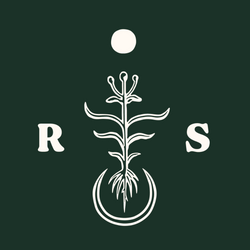LION'S MANE (Hericium erinaceus)
Lion’s Mane mushrooms are wild, edible mushrooms that belong to the Hericiaceae family. Also known as the Bearded Tooth fungus, Pom Pom mushroom, Yamabushitake, Comb Tooth, Shishigashida, Monkey Head mushroom, and the Bearded Hedgehog mushroom. Lion’s Mane mushrooms have been growing wild in temperate climates for several hundred years in Europe, in North America, especially in the southeast, and also in Asia, specifically Japan, China, and Korea. Lion’s Mane mushrooms grow on freshly cut portions of living hardwood trees such as sycamore, walnut, American beech, oak, birch and eucalyptus. Belonging to the tooth fungus group, these mushrooms are somewhat rare to find in the wild as they tend to grow higher up on trees, but they are also cultivated on sawdust and logs for commercial markets. Lion’s Mane mushrooms grow all over the world and are used in many culinary applications as a meat substitute and are also used in Asia for its medicinal properties.
Lion’s Mane mushrooms have been used for centuries in traditional Eastern medicine and are believed to provide many benefits to the body. In China and Japan, the Lion's Mane mushroom is used in supplement form or consumed fresh to help improve the memory, reduce anxiety, fight inflammation, and to boost the immune system. These mushrooms are also applied to wounds on the skin to help speed up the healing process.
Lion’s Mane mushrooms are medium to large in size, averaging 10-25 cm’s in diameter, and are spherical and elongated with a single, hidden base. The tough, fibrous base is covered in soft, overlapping, slender spines that average 1-5 cm’s in length and dangle freely down towards the ground ending in pointed tips. Each of the spines, also known as teeth, release spores into the air promoting new growth on nearby trees. When the mushroom is young, the spines are bright white, but with age, the spines discolour to pale brown-yellow. Lion’s Mane mushrooms are tender and chewy with a mild, sweet, seafood flavour reminiscent of scallops, lobster, or crab.
Lion’s Mane mushrooms contain bioactive substances that have beneficial effects on the body, especially the brain, heart and stomach ulcers which are often caused by two major factors: overgrowth of a bacteria called H. pylori and damage to the mucous layer of the stomach that’s often due to long-term use of non-steroidal anti-inflammatory drugs. Lion’s mane extract may protect against the development of stomach ulcers by inhibiting the growth of H. pylori and protecting the stomach lining from damage.
Lions mane is rich in zinc, potassium, calcium, and beta-glucan polysaccharides which can help protect the overall health of the human body. Antioxidants found in Lion’s mane may fight both inflammation and oxidation in the body. It is known that inflammation in the body contributes too many medical conditions, including diabetes, heart disease, and autoimmune diseases. Studies have found that Lion’s mane mushrooms contain two special compounds that can stimulate the growth of brain cells and promote nerve health; hericenones and erinacines. Lion’s mane has shown to improve memory and cognitive function of the brain and may assist to combat Dementia and Alzheimer’s disease. Studies have found that Lion’s mane extract can also help regenerate brain cells and improve the functioning of the hippocampus, a region of the brain responsible for processing memories and emotional response, thus explaining the reductions in anxious and depressive behaviours.
Research has found that Lion’s mane mushroom extract may help speed recovery of brain, spinal cord or nervous system injuries by stimulating the growth and repair of nerve cells.
Lion’s mane mushroom stimulates nerve growth factor (NGF) and brain-derived neurotropic factor (BDNF), which jump-start the production of new cells, strengthen existing ones and increase brain plasticity.
Little is known about the safety of long-term use and side effects of Lion's mane supplements. However, there's some concern that lion's mane may aggravate symptoms in people with allergies and asthma. Therefore, it's important to consult your physician prior to using Lion's mane, or any other supplement, if you have a history of allergies and/or asthma or any other medical condition.

